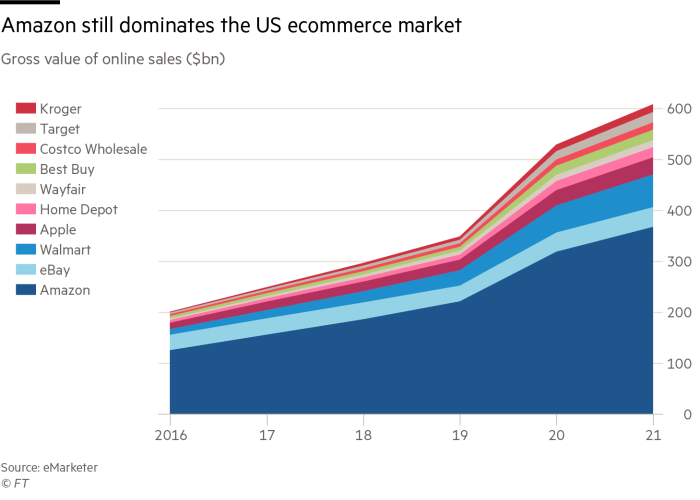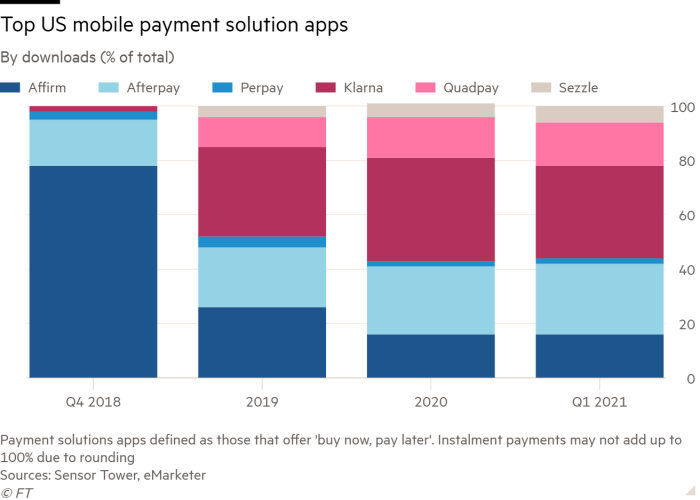Tencent under pressure over ‘opium’ gaming addiction
Technology sector updates
Sign up to myFT Daily Digest to be the first to know about Technology sector news.
This article is an on-site version of our #techFT newsletter. Sign up here to get the complete newsletter sent straight to your inbox every weekday
China’s video game companies have become the latest tech target for the authorities, with Tencent having to announce new restrictions on how long minors can play its online games.
In a social media post, the company said it was introducing the measures after “relevant authorities” requested greater protection of minors in gaming and for companies to carry out their “societal responsibility”. An article in the state-run Economic Information Daily newspaper on Tuesday said online video games had grown into “spiritual opium worth hundreds of billions”. One expert warned that “no industry . . . can develop in a way that destroys a generation”.
Shares in Tencent, whose online games business generated Rmb39.1bn ($6bn) in the first quarter and accounted for 30 per cent of its total revenues, fell 6.6 per cent in Hong Kong. Its stock is down almost a quarter in the past month and it has lost $400bn in market value since its January peak. Gaming peers NetEase and XD finished Tuesday’s session down about 8 per cent each.

Tencent will now prohibit in-game spending by under 12s and will cut the time they can play its Honor of Kings game to 1 hour from 1.5 hours a day normally.
China’s tech stocks notched their worst month since the global financial crisis in July following an unprecedented regulatory campaign against tech sectors including education, ride-hailing and social media.
Daily newsletter

#techFT brings you news, comment and analysis on the big companies, technologies and issues shaping this fastest moving of sectors from specialists based around the world. Click here to get #techFT in your inbox.
Alibaba and its payments affiliate Ant have also suffered under the crackdown and the ecommerce giant’s shares are down 2 per cent in New York after it reported slowing growth in the second quarter, with organic revenues increasing only 22 per cent year-on-year. However, profits at Ant rose about 50 per cent to Rmb13.6bn ($2.1bn), although restructuring due to tougher regulations could inflict damage in coming quarters.
Lex sees a measured recovery from Alibaba after being targeted first by regulators. Beijing’s game of sectoral whack-a-mole does mean investors must expect limits on valuations of shares that will follow policy-driven cycles, it says. These will be shorter than familiar industry cycles and equally hard to time.
The Internet of (Five) Things
1. Amazon faces unionisation rerun
A failed vote to unionise at an Amazon warehouse in Alabama should be rerun over concerns that the tech giant improperly influenced workers, a US labour board official has recommended. Dave Lee has been looking at Amazon’s Multi-Channel Fulfillment subdivision, which leverages its delivery network to provide logistics services for its rivals.

2. IMF warns against crypto
The IMF has warned against countries using cryptocurrencies as legal tender, just over a month before El Salvador is set to become the first nation in the world to allow bitcoin to pay for everything from haircuts to taxes. The Washington-based lender said widespread use of cryptocurrencies would threaten “macroeconomic stability”. Meanwhile, Singapore is set to grant regulatory consent to a cryptocurrency exchange for the first time.
3. Debt and fintech in Korea, Square’s Afterpay bet
After struggling for years to keep a lid on household debts that hit a record Won1,765tn ($1.6tn) in March, Seoul is looking to fintech companies and peer-to-peer lenders for answers, reports Song Jung-a. Afterpay acquirer Square tells us it sees a buy now, pay later opportunity representing $10tn in payments volume by 2024.

4. Lunch with the FT: mathematician Hannah Fry
The author-broadcaster talks to John Thornhill about the limitations of artificial intelligence, how to teach Boris Johnson about exponential growth and how a cancer diagnosis made her reassess risk. In the latest episode of our Tech Tonic podcast, John investigates whether AI’s potential in the fight against the climate crisis justifies the massive amounts of energy it takes to run its systems.
5. Could gamers compete in the real Olympics?
While it does fit most of the IOC’s criteria for inclusion, with an international federation and practitioners in many countries, there is a fundamental bone of contention about video games being part of the Olympics. Tom Faber asks if esports is physical enough to be considered a sport.
Tech tools — Google’s Pixel 6
Google has provided a sneak peek at its next generation of smartphones coming in the autumn. The Pixel 6 and Pixel 6 Pro have an unusual “camera bar” design with the Pro having three cameras, including a telephoto lens and a 4x optical zoom, and the Pixel 6 just lacking the telephoto option. Both are powered by its first ever smartphone SoC (system on a chip), called Google Tensor. It says this can power AI and Machine Learning to enable a “transformed experience for the camera, speech recognition and many other Pixel 6 features”.
